How rehabilitation of children affected by war in Ukraine works
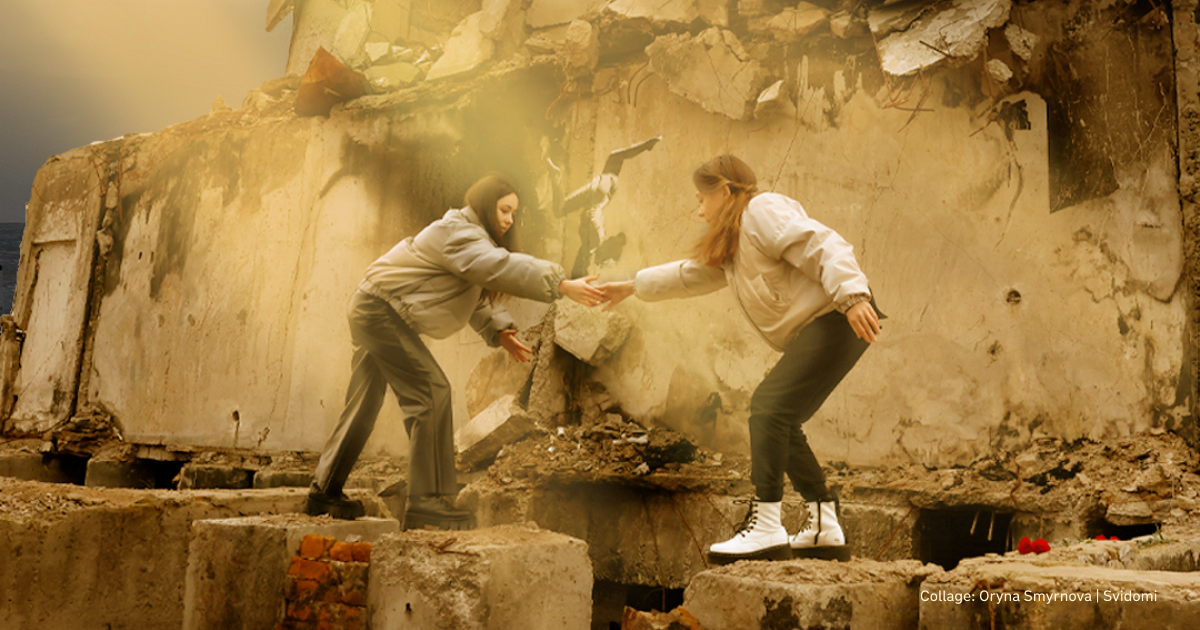
"War is a threat to the childhood and future of every little Ukrainian," says Murat Shakhin, UNICEF Representative in Ukraine.
As of March 13, 1,254 children have been injured. UNICEF estimates that 1.5 million children are at risk of depression, anxiety, post-traumatic stress disorder and other mental health problems.
Due to the full-scale invasion, Ukrainian children need physical and psychological rehabilitation, said First Deputy Minister of Health of Ukraine Serhii Dubrov.
Read the article to find out how Ukrainian specialists and organisations help children during physical and psychological rehabilitation and how the experience of Israel, a country that is constantly at war, helps Ukrainian children.
Physical rehabilitation of children
During the two years of the full-scale invasion, the physical rehabilitation of children affected by the war has steadily improved, Nazar Borozniuk, a physiotherapist at the Okhmatdyt Children's Specialized Hospital, tells Svidomi. A separate modern rehabilitation centre for children affected by the war is being built based on the hospital.
According to Borozniuk, children most often suffer from mine and shrapnel injuries. In some cases, they suffer amputations and burns. During rehabilitation, each child is treated individually, as even with similar injuries, children behave differently.
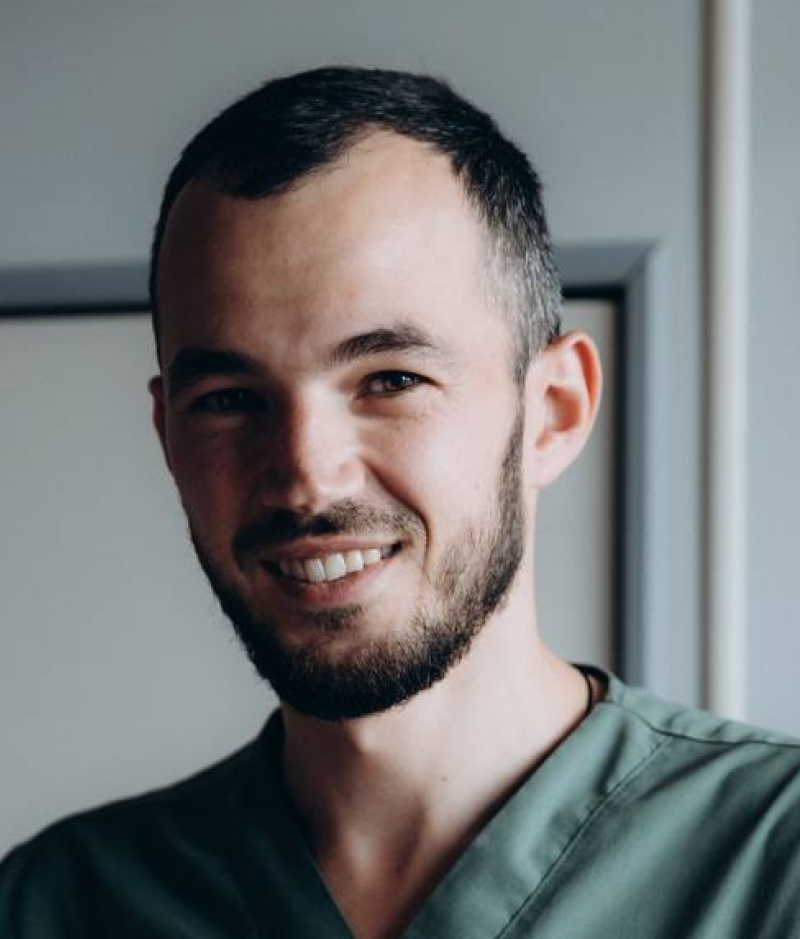
It is important to consider the psychological aspect of the child, such as how they behave, feel, and perceive everything around them. In most cases, a child who has suffered as a result of hostilities may refuse to communicate with doctors. But some can be very accessible,
explains the therapist.
Physical rehabilitation also includes psychological rehabilitation. The child's treatment involves a team of doctors, including psychologists, rehabilitation therapists, and social workers. The hospital also employs special actors (hospital clowns — ed.) who entertain the children and organise concerts and games.
"There are children who refuse to talk. It is important to support them and show that they are not alone and everyone understands them. Many children come out of this state thanks to the joint work," says the doctor.
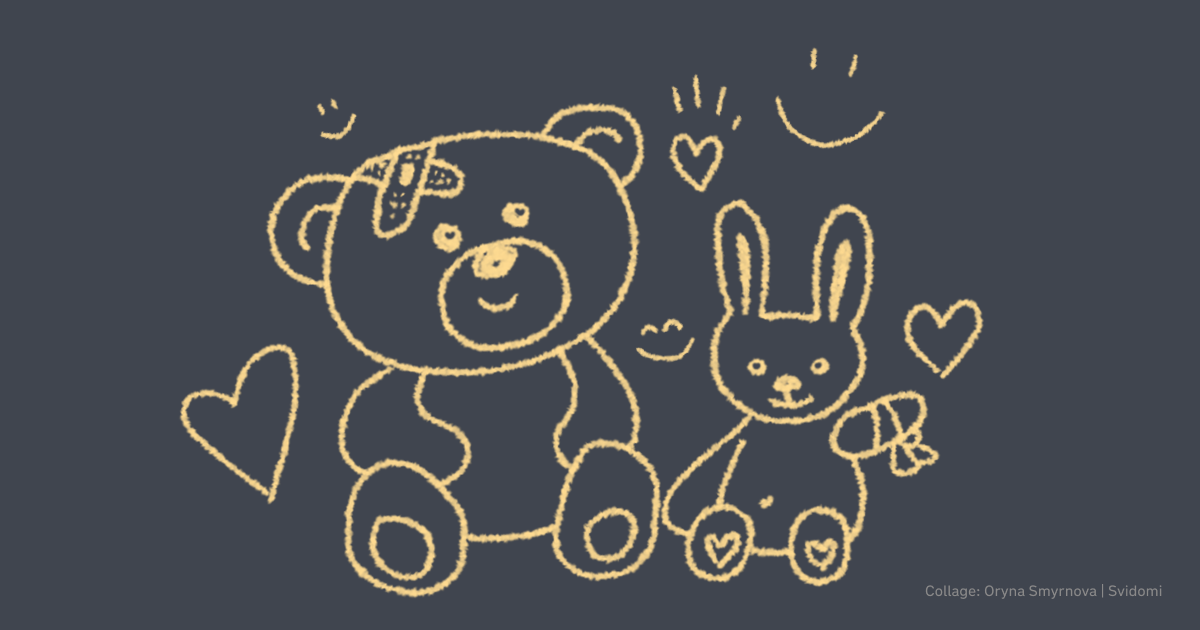
Specialists working with children's rehabilitation also need to be psychologically prepared. Their work involves not only treatment but also moral support for young patients and their parents. However, not everyone is ready for this kind of work, and there is a shortage of specialists.
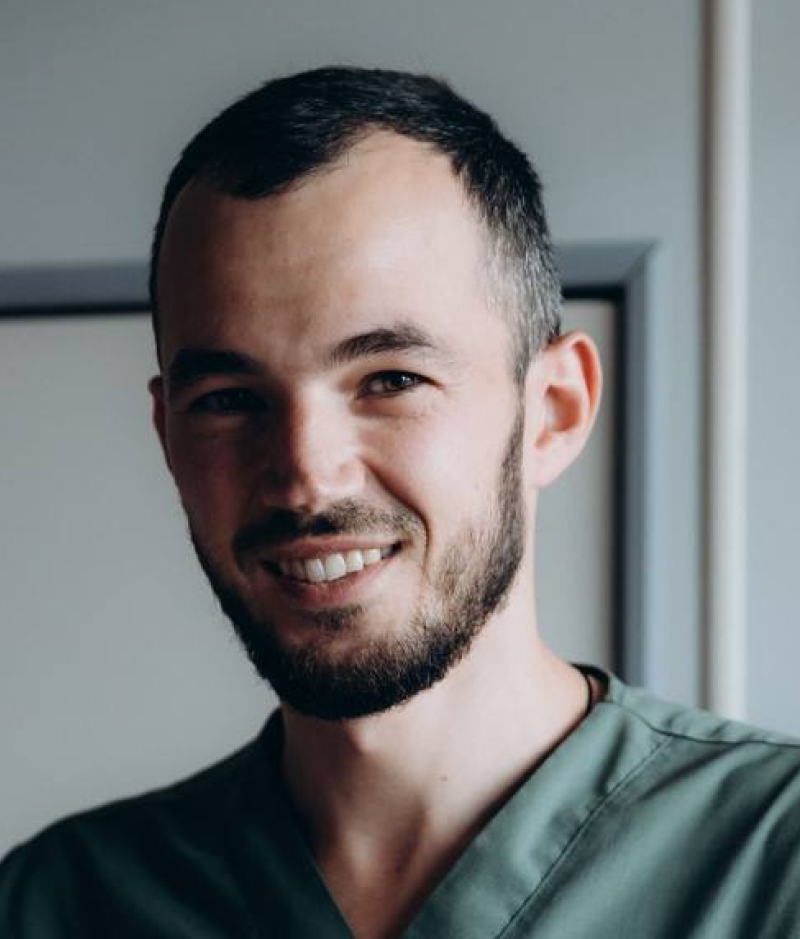
We often have to work with serious injuries. Parents consider doctors as psychologists who are supposed to support and understand them,
says Nazar Borozniuk.
Psychological rehabilitation of children
Children who have suffered as a result of a full-scale invasion often experience varying levels of stress. As a result, they can experience psychological trauma, explains Polina Startseva, a psychologist with the Voices of Children Foundation (an organisation that provides psychological rehabilitation to children affected by war — ed.)
"There are children who have not been in the occupation or at the epicentre of the explosions but who have more severe consequences of stress and psychological trauma. There is what is known as 'witness trauma', when someone has not directly witnessed news, events or heard information from someone else, and may experience more than the children who were directly there," says the psychologist.
A child's vulnerability depends on their nervous system, how they have dealt with stress in the past and how safe the environment they have grown up in is. The psychologist explains that there is a category of children who are re-traumatised because they have already been exposed to the war in 2014-2015 (Russian occupation of the Crimean peninsula and the outbreak of hostilities in the east of Ukraine in the Donetsk and Luhansk regions — ed.).
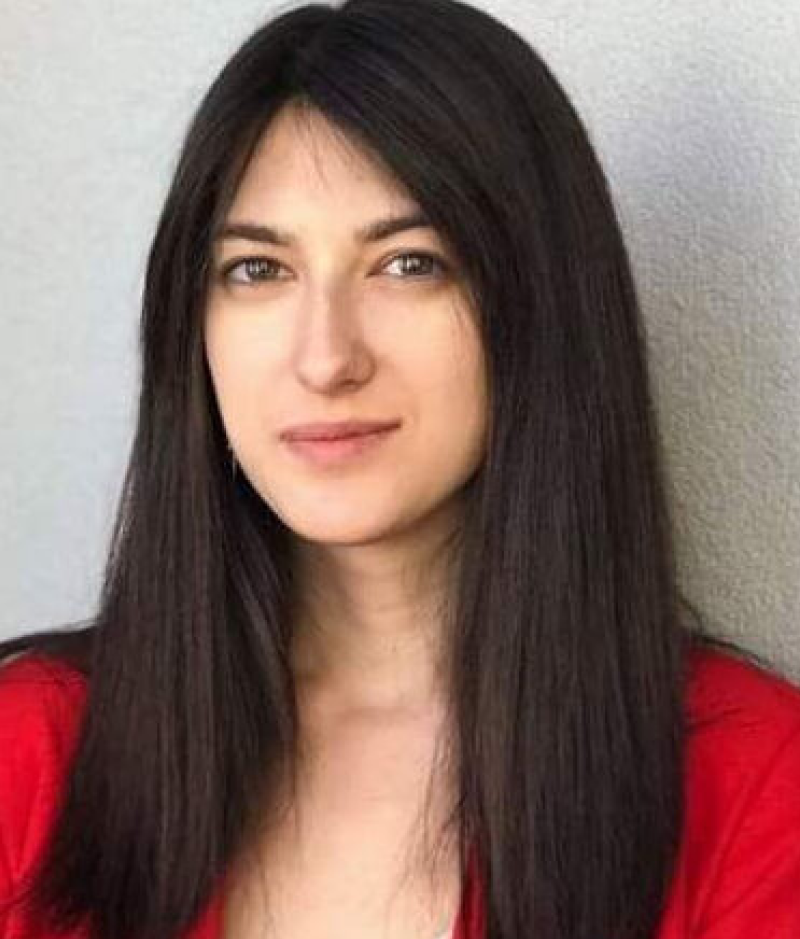
Some children have been unable to heal the old wound and have memories from that time. When this happens, it causes re-traumatisation,
explains Polina Startseva.
However, some went through the war experience a second time, were more prepared, and had a precise algorithm of action. That is why they experienced less stress. Some children do not remember past events, and the beginning of the full-scale invasion was like the first time for them.
"Parents of younger children ask us about overcoming their children's fears. They range from fear of the dark to fear of sounds, smells and certain lights. Bad dreams and negative memories torment them. Parents also come because their child's studies are going badly, and they feel lonely," says the psychologist.
The most common reasons why teenagers seek help are anxiety, depression, deteriorating relationships, suicidal thoughts and eating disorders. In addition to anxiety, adolescents experience confusion about the future and feelings of powerlessness.
Psychosomatic symptoms are also observed in children of different ages when pain occurs in different parts of the body. If the examination does not reveal any illness, the doctors advise them to see a psychologist.
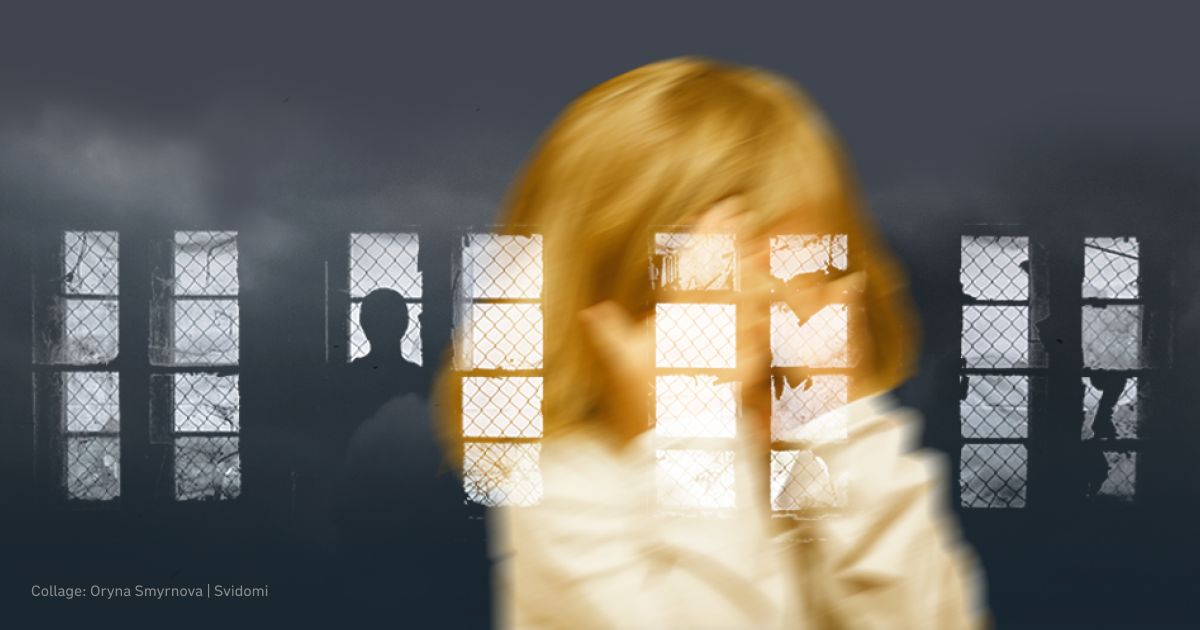
Specialists at the Children's Voices Foundation provide rehabilitation through individual and group therapy. During ten individual crisis counselling sessions, psychotherapists help clients to stabilise and find their ways of dealing with the problem, developing flexibility and regaining a sense of control over their own lives. If this is not enough, they can move on to group therapy and choose the direction they want to develop.
The Foundation has organised 13 rehabilitation centres in different regions of Ukraine, where specialists support parents and children. Psychologists provide consultations, group and individual psychological sessions and activities (workshops, camps, excursions, etc.). There are also methodological courses:
- "Children and War"(cognitive-behavioural techniques to help children cope with traumatic thoughts and experiences);
- "Safe Space" (a stabilisation programme to develop resources and skills);
- "8-step programme" for children and adults who have experienced loss;
- Camp+ — art therapy and sand therapy classes for children and adults (aimed at psychological rehabilitation and developing stress management skills).
At the centres, children can work through their fears, talk about what is bothering them, distract themselves from their worries, and release their emotions. Parents have the opportunity to get support and advice on difficult situations in their families.
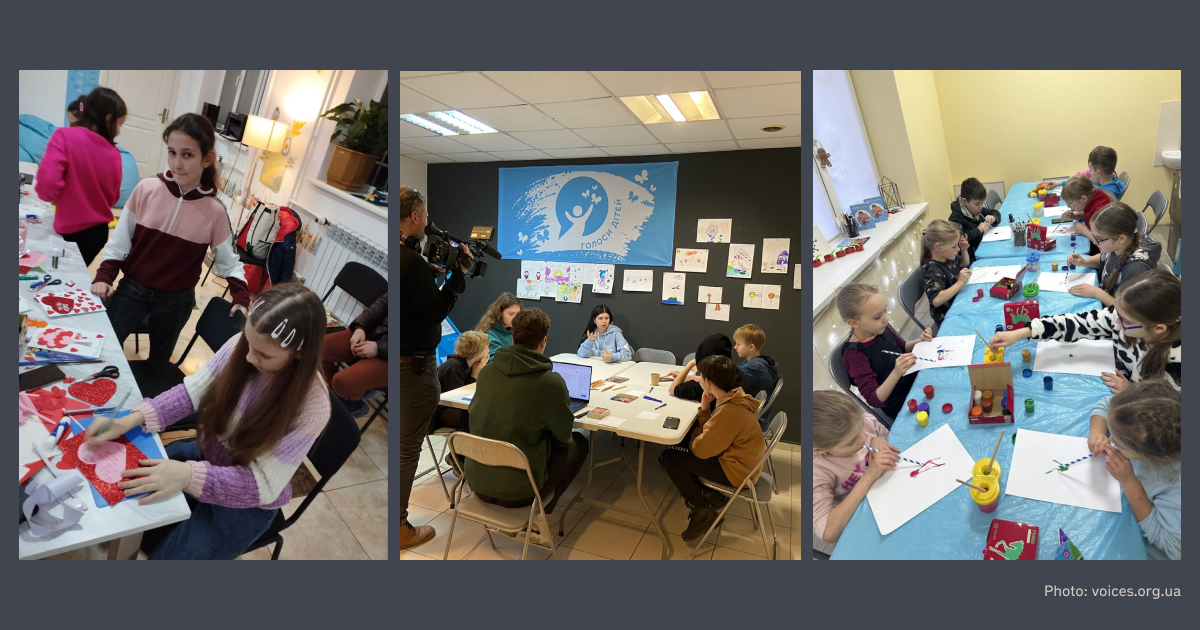
"The programmes consist of 7-8 sessions in groups of children of the same age. They also practise physical exercises — the ability to breathe properly and relax the body's muscles to better cope with stress," explains Polina Startseva.
In particular, there are psychosocial groups for rehabilitation. They are open, and the participants change all the time. The aim is to teach stabilisation techniques and to express unprocessed emotions in order to get rid of excessive tension in the body. It also helps internally displaced people socialise and adapt to new living conditions.
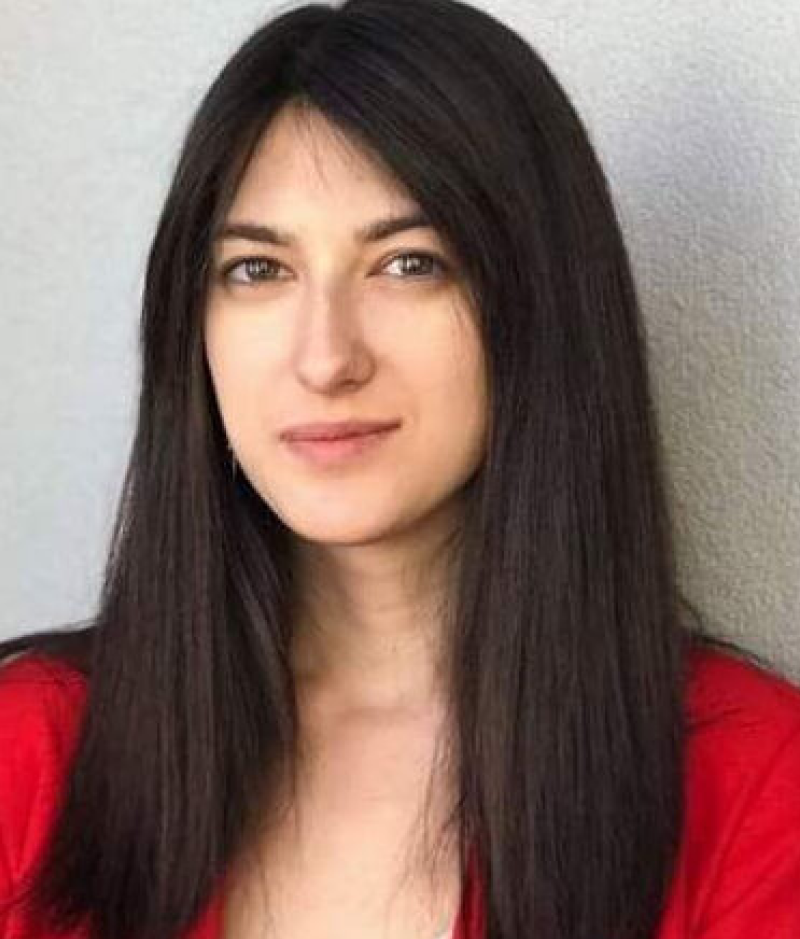
We always teach techniques related to breathing, relieving physical tension and techniques related to reformulating negative thoughts to stabilise the children's emotional state,
says the psychologist.
After rehabilitation, the children acquire self-help skills. We teach them how to recognise their feelings and deal with them themselves.
First Deputy Minister of Health of Ukraine Serhii Dubrov stresses the importance of having psychologists in schools so that children can seek help from specialists in all educational institutions.
As of January 2024, 195,486 Ukrainian teachers have acquired psychological support skills and are using them in the educational process, including to support the mental health of children affected by the full-scale invasion. The Ministry of Education and Science reported this to Svidomi.
The Ministry is also working on the content of education and the transformation of the psychological service to provide quality psychological support in educational institutions and build stress resistance in children and adults. The work is part of the All-Ukrainian Mental Health Programme "How are you?".
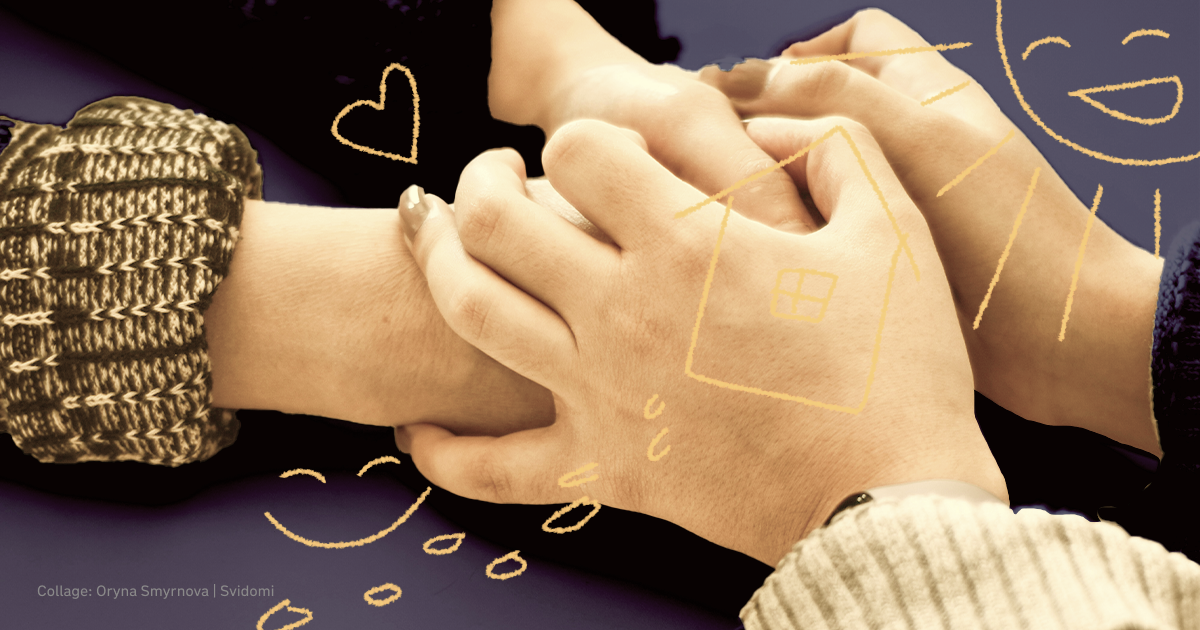
"It is important to be able to identify the problem in time and provide psychological support or, in some cases, psychotherapeutic and psychiatric support," says the First Deputy Minister of Health of Ukraine.
In particular, the Gen.Camp rehabilitation camp for children aims to improve children's health. The programme is open to children aged 6-16 who show signs of psychological trauma caused by war and the loss of one or both parents.
The psychological recovery programme lasts 21 days. During this time, the children undergo cognitive behavioural, art, and animal-assisted therapy. Children can receive psychological rehabilitation in groups or individually.
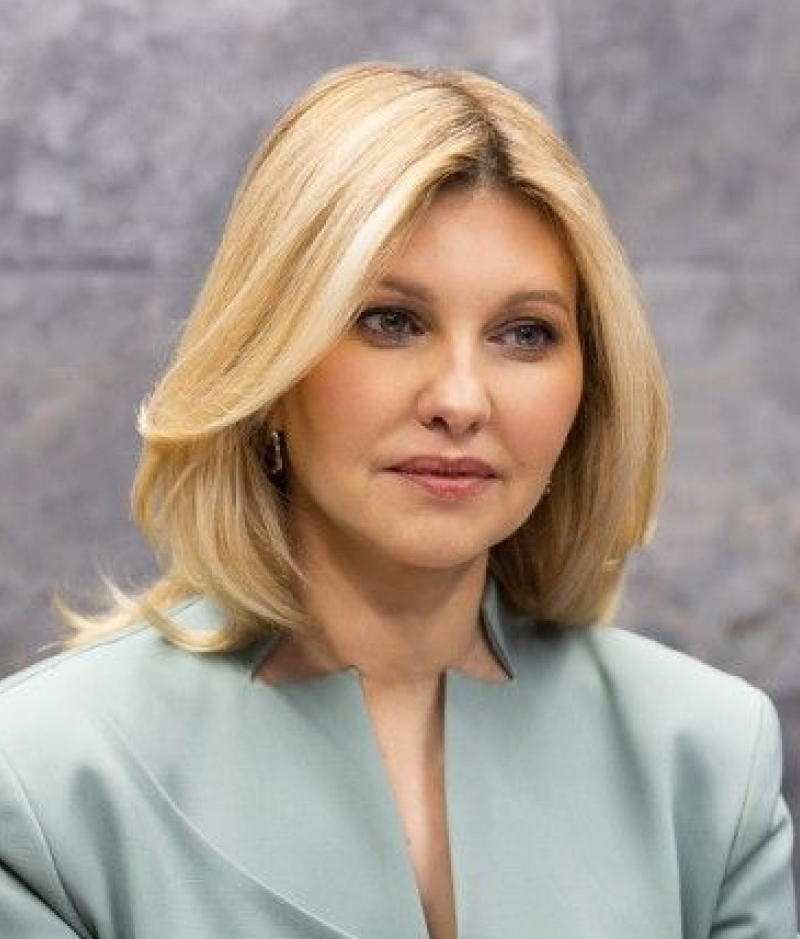
Children can overcome post-traumatic stress almost 100% with the right therapy,
said First Lady Olena Zelenska, under whose patronage the project is run.
Creating a barrier-free space
The state must adhere to the main directions of creating a barrier-free space in a child's life in order to guarantee the right to childhood, safety, health, education and social protection, the right to be identified, respected and treated fairly.
The Ministry of Education and Science has launched the "Education for All: Ukrainian Education without Barriers" project. Some of the decisions taken include:
- Providing school buses to communities so that every child has the opportunity to go to school and receive an education;
- Adoption of the National Strategy for the Development of Inclusive Education for 2023-2030;
- Developing and supporting the All-Ukrainian Online School, which provides distance learning with electronic resources for children whose schools have been destroyed or damaged by Russia and who study remotely;
- Equipping educational institutions with civil protection facilities. Safe conditions in schools will enable a return to normal education in those areas and regions where it is possible.
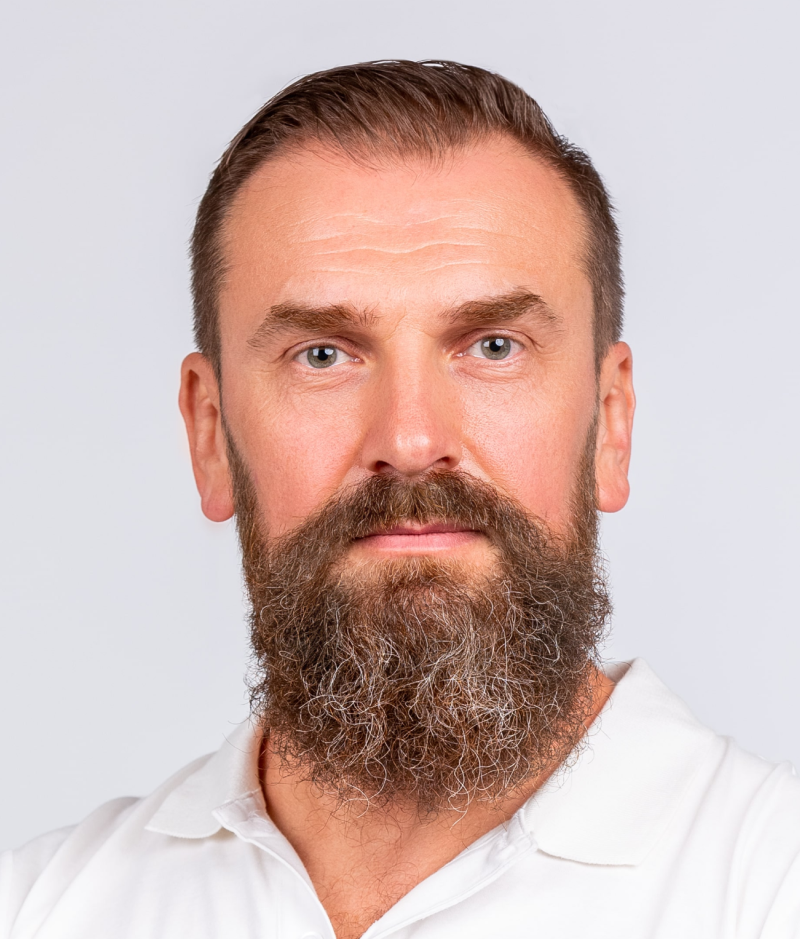
Our task today is to create opportunities for safe and quality education for children in Ukraine. It is a big challenge in times of war, but we must create all the conditions for every child to have access to education,
said Oksen Lisovyi, Minister of Education and Science of Ukraine.
Barnahus Centre
There are six specialised Barnahus centres in Ukraine for children who have suffered from violence or witnessed such crimes.
Barnahus is a place where specialists from social services, police, prosecutors, forensic medicine, paediatrics and child and adolescent psychiatry help children to rehabilitate as a result of war-related violence.
The centres aim to provide treatment and support to children and young people who have suffered various forms of abuse and crimes. It also aims to prevent the children from being traumatised by repeated interviews conducted by various services to document Russian crimes.
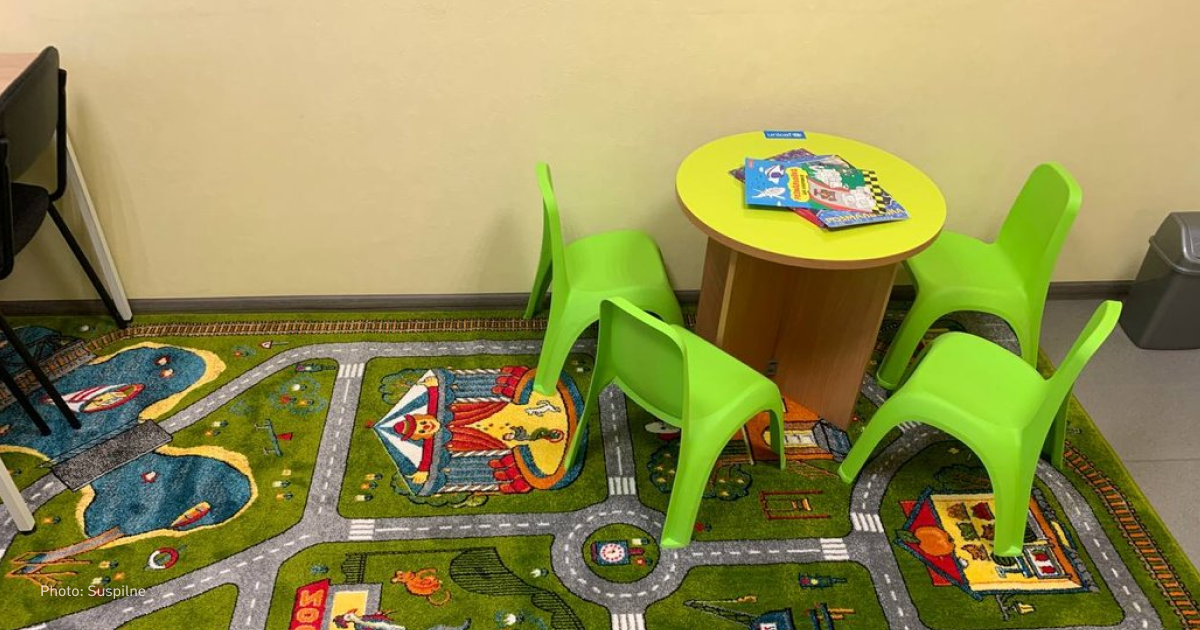
There are four rooms in Barnahus, each dedicated to a specific activity: criminal investigation, cooperation/defence, physical health and mental health.
How does Hibuki therapy help children?
Ukrainian experts practise Hibuki therapy in pilot schools across Ukraine, helping children cope with stress, overcome their fears and feel safe. A child works with a psychologist using a special Hibuki toy.
Hibuki is a soft toy, a dog with sad eyes. Every detail of the animal has its own meaning:
- The sad eyes make it possible for the child to associate himself with the toy and to transfer his fears and worries onto the toy;
- The size of the dog is suitable for a newborn baby — it is easy for the child to cuddle and feel protected;
- The dog is soft and pleasant to touch, made of safe and sustainable material — the child feels warm and comfortable.
"When children take care of Hibuki, they take an active position, giving a sense of strength and control. It helps to cope with difficult experiences. Hibuki is like a bulletproof vest for a child, making them feel safe and protected," said the therapy coordinators.
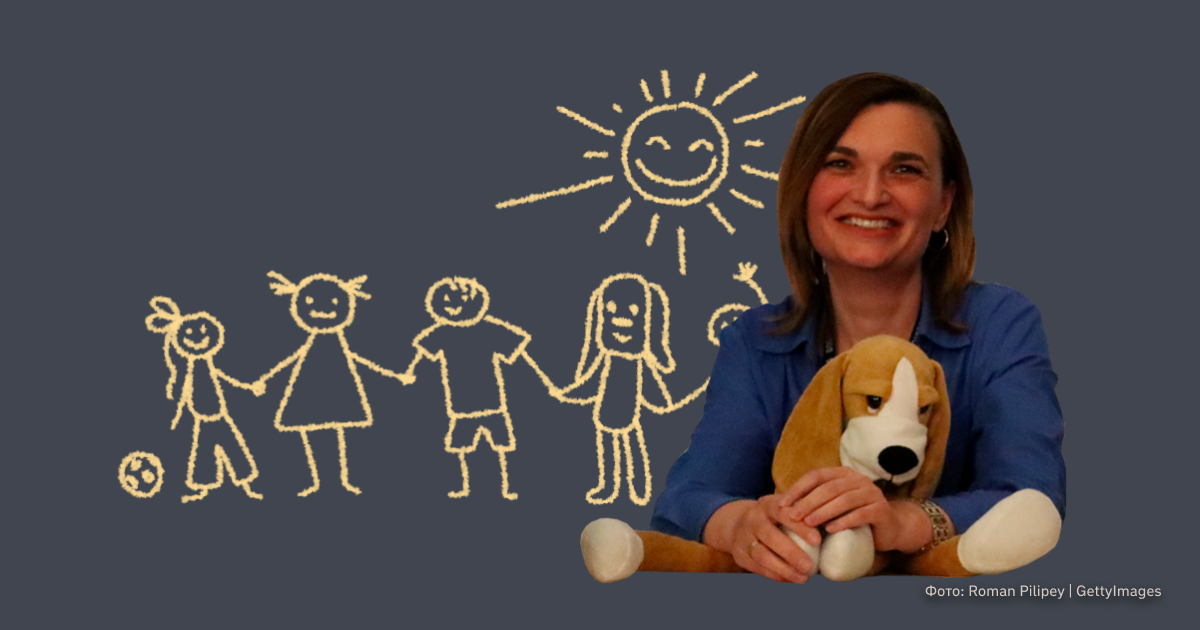
Hibuki toys are not sold commercially. It is a psychological tool used by a psychologist in the process of rehabilitation or correctional work with a child.
Hibuki was first developed in Israel for children in refugee camps during the Second Lebanon War in 2006. Over time, a special Israeli government programme was designed and implemented in kindergartens and primary schools. It provided every child aged 4 to 8 with a Hibuki toy and one or two sessions with a psychologist.

Children who have a toy are better able to cope with stress. The more they take care of their hibuki, the better they feel and the less aggression and depression they experience,
says Dafna Sharon-Maksimov, an Israeli psychologist and coordinator of the programme in Ukraine.
The methodology is designed for 8-12 sessions. However, the number of sessions can be increased if necessary. During the sessions, they work not only with the child but also with his parents, guardians and teachers.
Another toy cannot replace Hibuki because it is all about the methodology, therapy process and the child's communication with the psychologist, says Halyna Syshchuk, a psychologist, teacher and Hibuki therapist.
"Hibiki therapy is one of the branches of art therapy and can be effectively combined with various methods: isotherapy, music therapy," says Tetiana Shapran, a psychologist and member of the Ukrainian Psychoanalytic Union.
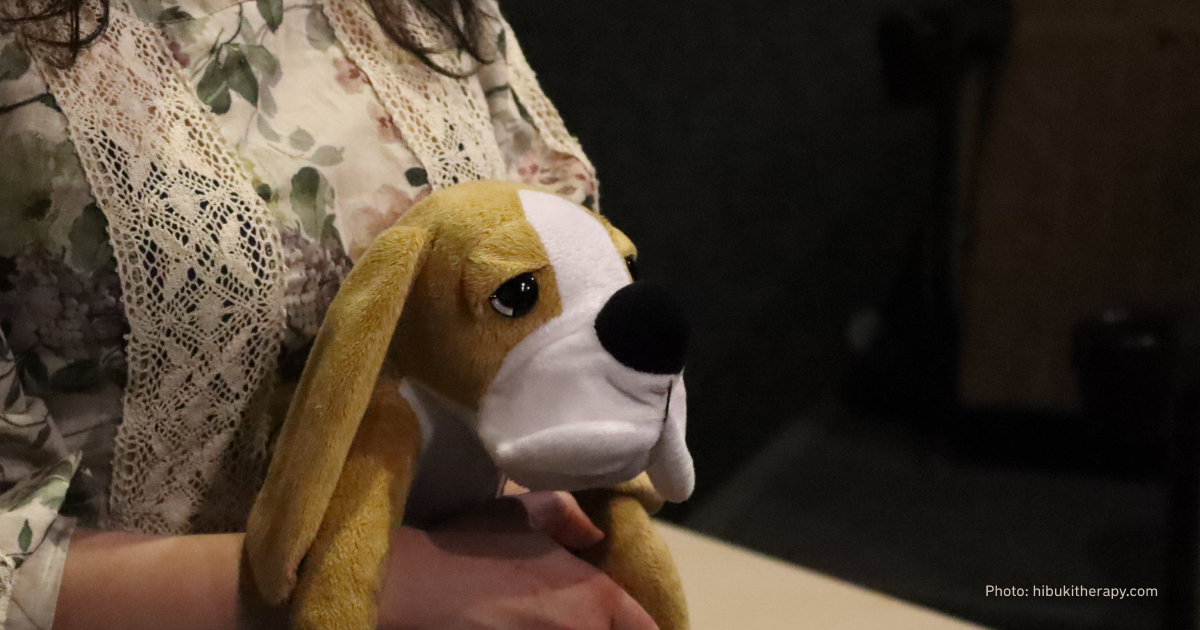
"Our task is to teach people to live with trauma because it is a part of our lives. The most important thing is that the trauma is not fundamental and does not affect the rest of your life," explains the founder of the Hibuki therapy method.
Experience of rehabilitation of a child from the temporarily occupied Enerhodar in the Zaporizhzhia region
Olha Chorna is the mother of eight-year-old Denys and seventeen-year-old Oksana. Her family has lived all their lives in Enerhodar (the town in the south of Ukraine, where the Zaporizhzhia NPP is located — ed.), Zaporizhzhia region. Since March 2022, Russian troops have temporarily occupied the town and the nuclear power plant.
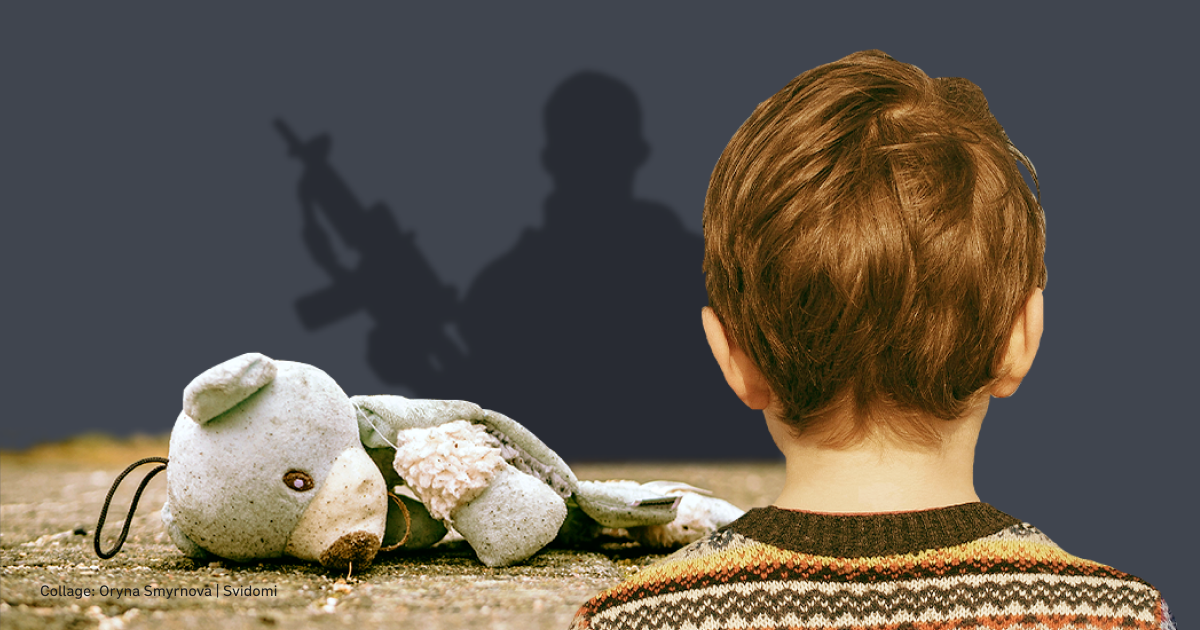
"On March 4, the Russians came to the city. They turned on the air-raid siren, which continued to wail for almost a day. It was morally difficult to listen to it all the time. Then we heard the sounds of explosions. Everyone was scared, especially the children," says Olha.
At the same time, the family saw black smoke from the window, gathered their most valuable belongings, and went down to the fourth floor and into the corridor (the family lived on the ninth floor — ed.). The woman remembers that her son did not show any fear but was always sleepy. She thought he had a defence mechanism against stress.
Later, the family heard about the fire at the nuclear power plant and did not go out for several days. It was hard for the children to stay at home all the time.
There was a shortage of food in the city. Olha and her husband would get up at five a.m. to stand in line to buy bread.
"The children realised that there was a lack of food. If they wanted something tasty, they knew it was not available at the moment. During that time (the period of living under the occupation — ed.), they did not even ask for anything," says Olha Chorna.
The family lived under occupation until August 2022. They started turning off the electricity in the town, and we heard explosions. Another reason for leaving was the eldest daughter's admission to university. In 2022, she finished eleventh grade (last year of study in Ukrainian schools — ed.).
"The move was difficult for the children. They did not take any toys or other personal belongings. My son only took his favourite toy. It was painful not to let him take everything, but we had no other choice," she recalls.
The family was on the road for about a day. At Russian checkpoints on the temporarily occupied territories, they had to take out all their belongings and get out of the car. The younger son was afraid of the Russian military with machine guns and did not get out of the car. During the journey, they heard explosions and saw cars on both sides of the road that had been shelled and burnt.
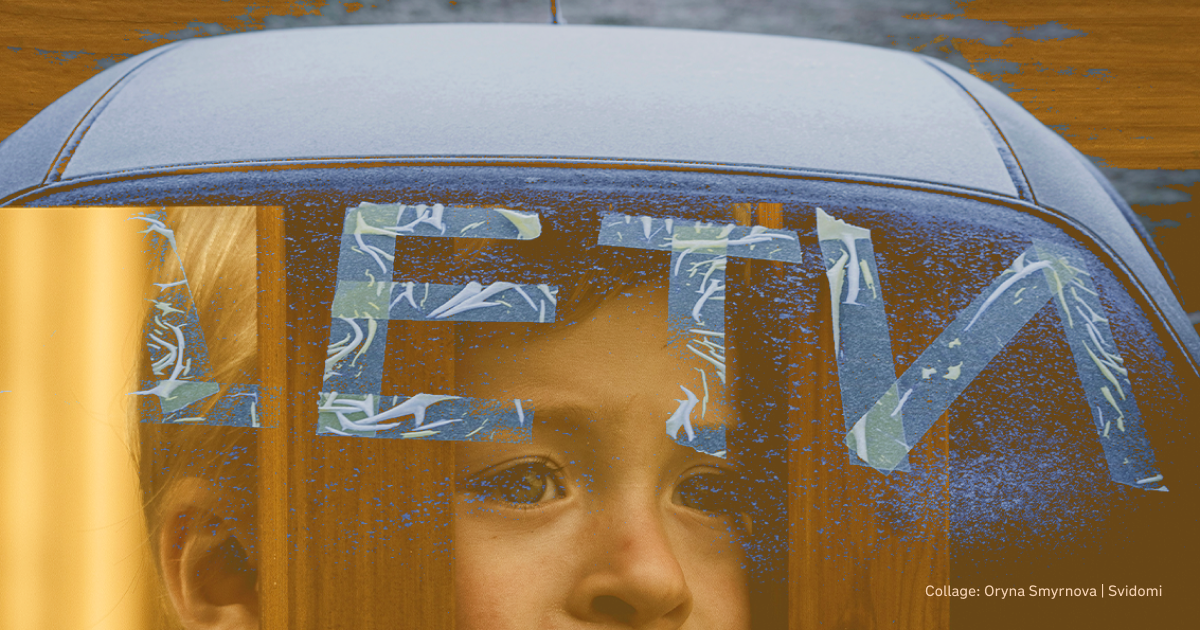
The family now lives in Zaporizhzhia, which is in the south of Ukraine. The boy constantly wants to go home, and despite his awareness of the events and the need to leave, he asks about Enerhodar.
"I noticed that he was getting more and more nervous. There is a lot of shelling in the city, and my son is afraid of it. He wants to hide. He has panic fear," says the woman.
The woman contacted the Voices of Children Foundation to improve her son's condition. Denys started attending therapy sessions — art therapy, communication with psychologists, etc. During the sessions, psychologists help him to cope with different states and to understand his feelings. The boy often drew and explained his feelings to his mother, recalls Olha Chorna.
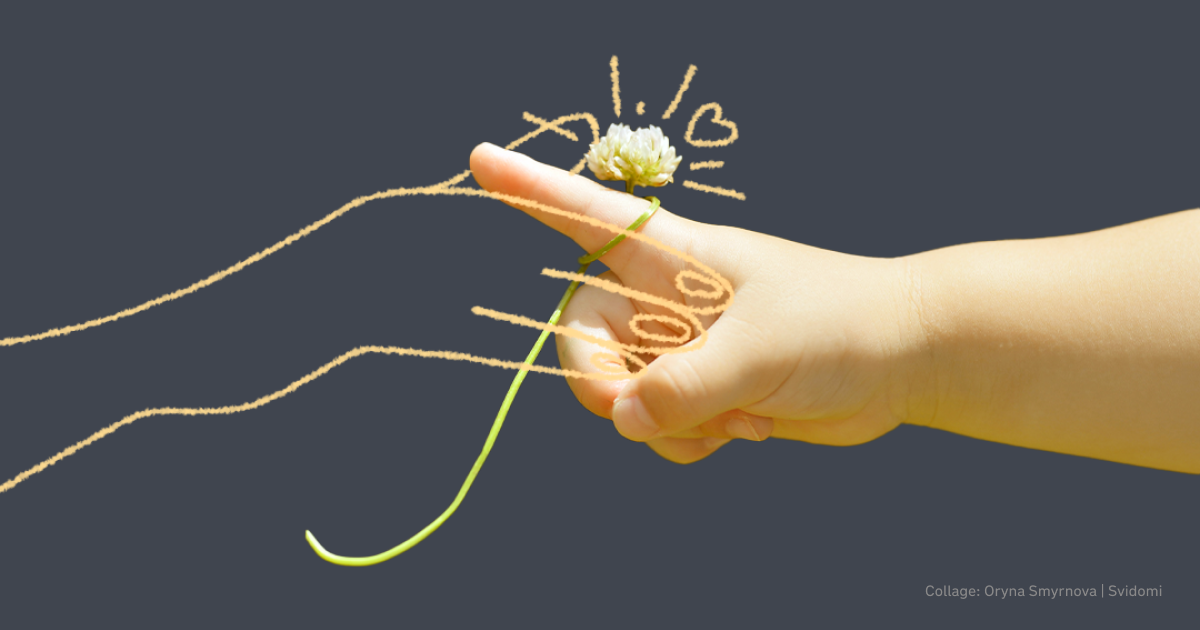
"Over time, he became calmer. He is not so irritated after the lessons. Sometimes, Denys says that he is not so nervous anymore. The child sees changes in himself," says Olha.
Group therapy helps displaced children find friends and like-minded people. The mother also visited a psychologist to improve her condition and better understand her child's condition.


